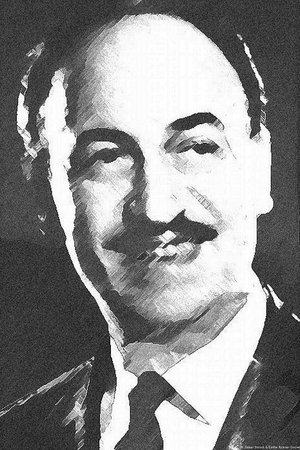Adolf Rosner (1910-1976)
Alias:
Adi Rosner
Ади Рознер
Адольф Рознер
Эдди Рознер
Birthplace:
Berlin, German Empire
Born:
May 26, 1910
Died:
August 8, 1976
Trumpeter, violinist, conductor, composer, orchestra leader. In 1925-1927 he studied at the Berlin Conservatory in the violin class, in 1928-1929 he studied composition and conducting. He mastered the pipe on his own; he considered Louis Armstrong, Harry James and Bunny Berigen his idols. In 1929–38, he played intermittently in one of the most popular European orchestras Weintraub Sincopators, then organized a band in Lodz (Poland), toured in many European countries. In 1939 he led the orchestra in Warsaw, after the Nazi Germany attacked Poland, together with a group consisting mainly of Jewish musicians, he fled to Bialystok, which departed to Belarus. A few months later, the orchestra received the status of a republican group, because at that time Belarus did not have its own jazz orchestra, and the party leader of the republic, Ponomarenko, was an avid fan of jazz. Over the next two years, Rosner toured in Moscow, Leningrad, in other cities and was recognized as one of the best trumpeters-soloists (improvisers). The hits of the program are “Caravan”, “Tales of the Vienna Woods”, Rosner’s song “Quiet Water”, two songs by Albert Harris (to the words of Yuri Zeitlin) “Cowboy” and “Mandolin, Guitar and Bass”. During the Great Patriotic War, he spoke at the fronts and in the rear. In 1946, in connection with the persecution of jazz, the orchestra was disbanded, Rosner was arrested for trying to leave for Poland, and convicted under article 58.10 (treason to the homeland). In 1946–53 he was in a camp in Magadan, where, at the request of his superiors, he formed a jazz orchestra of prisoners. After full rehabilitation, he headed the big band in Moscow. Arranger Yuri Saulsky wrote for the orchestra of fantasy Chapliniada, Duniada and the composition Solo Percussion for the brilliant drummer Boris Matveev. Rosner played the trumpet less and less (he suffered scurvy in Magadan), he was mainly conducting the orchestra. In the 1960s, the group was joined by Gennady Holstein, Konstantin Nosov, David Goloshchekin, arranger Vitaliy Dolgov, the orchestra performed at the Moscow festival in 1967 and toured with a modern pop-jazz program, which Rosner himself did not accept. In 1969, Rosner tried to assemble a new squad in Gomel. Having lost the ability to play the trumpet because of his health, experiencing a difficult creative and personal crisis, E. Rozner left the country in 1973 and died four years later, at the age of 66, in West Berlin.






